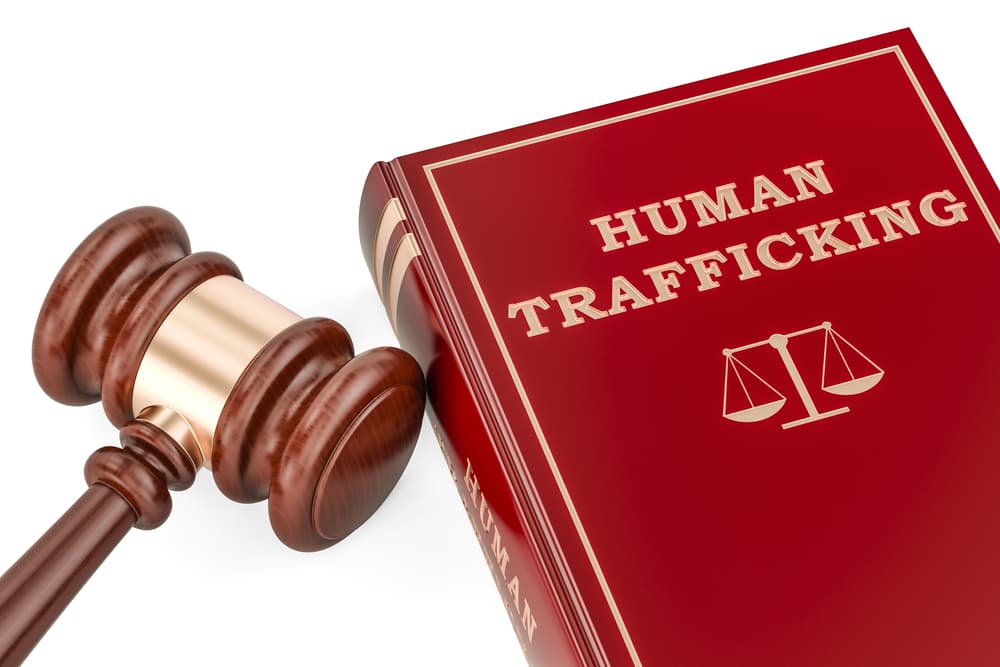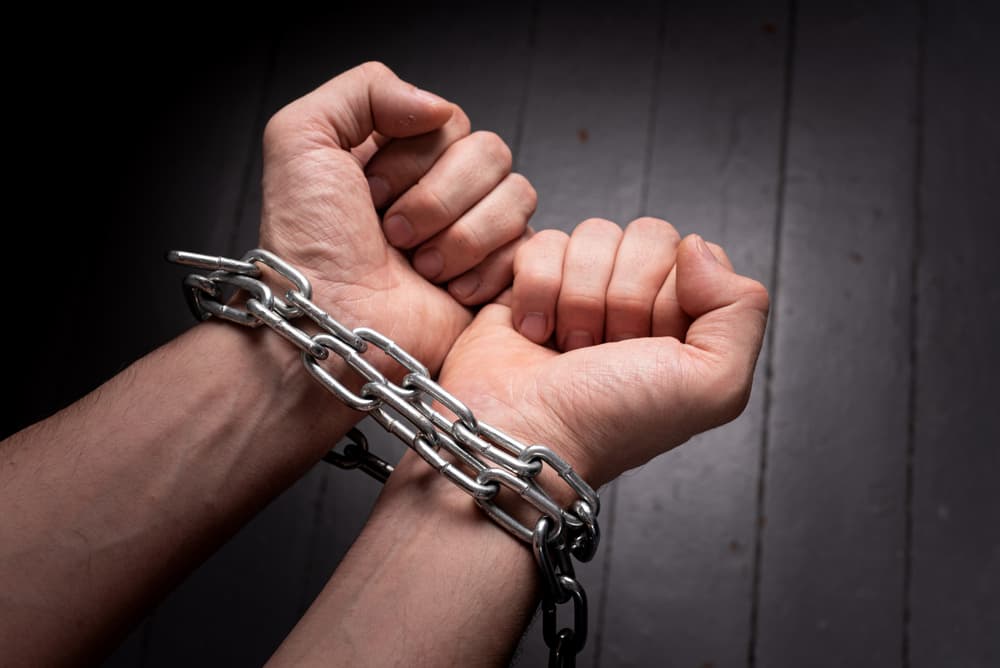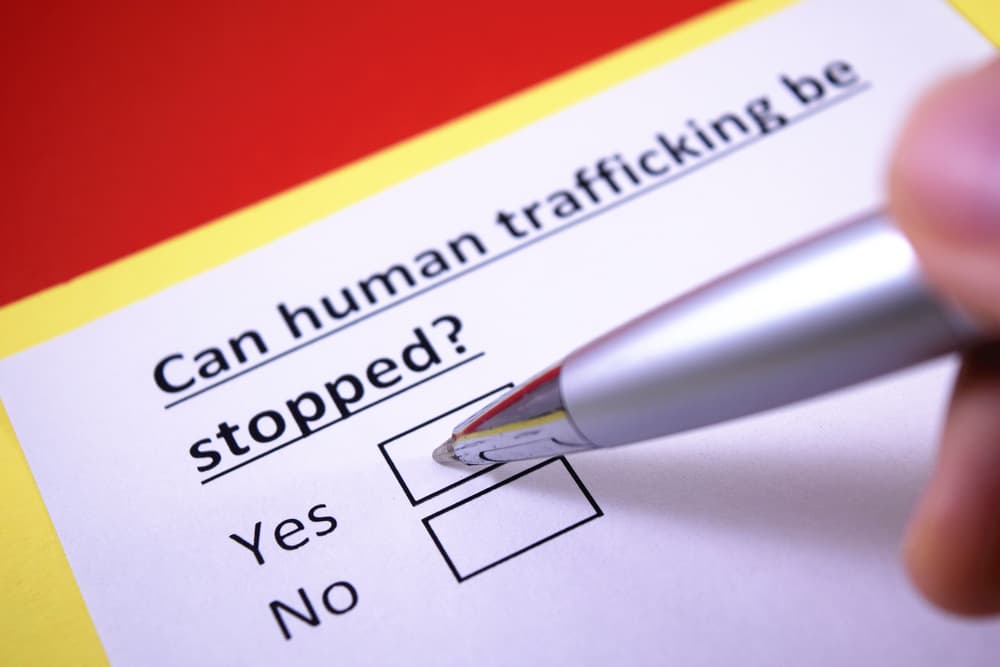Human trafficking is a serious issue in Texas, and the state has implemented several laws to combat it. These laws focus on prevention, protection, and prosecution to address different aspects of human trafficking, including both sex trafficking and labor trafficking.
If you are currently facing a criminal charge for human trafficking, you should consult a criminal defense attorney in Texas right away. Your lawyer can review your legal options with you, take action on your behalf, and pursue the best possible result in your case.
What Are the Various Laws About Human Trafficking in Texas?

One of the key laws is the Texas Penal Code, Section 20A, which specifically addresses human trafficking. This section defines trafficking as the act of recruiting, transporting, harboring, or receiving people through force, fraud, or coercion for the purpose of exploitation. It covers both sex trafficking, where individuals are forced into prostitution or other forms of sexual exploitation, and labor trafficking, where individuals are compelled to work against their will in industries such as agriculture, construction, or domestic service.
In addition to the Penal Code, Texas has the Human Trafficking Prevention Task Force, established under the Texas Government Code, Section 402.035. This task force is responsible for developing policies and coordinating efforts among various state agencies to prevent human trafficking. It also works to raise public awareness and provide training for law enforcement and other stakeholders.
The Texas Business and Commerce Code also plays a role in addressing human trafficking. For instance, Section 114.001 requires certain businesses, for example, massage parlors and sexually oriented businesses, to post notices with information about human trafficking and resources for victims. This is aimed at increasing awareness and providing potential victims with access to help.
Moreover, the Texas Family Code, Section 264.006, addresses the welfare of children who are victims of human trafficking. It mandates the Texas Department of Family and Protective Services to provide services and support to trafficked children, including placement in safe environments and access to medical and psychological care.
Another significant piece of legislation is the Texas Civil Practice and Remedies Code, Section 140A. This law allows victims of human trafficking to file civil lawsuits against their traffickers, seeking damages for the harm they have suffered. This provides an avenue for victims to obtain compensation and hold their traffickers accountable.
If you are currently facing a criminal charge pursuant to one or more of these Texas Code sections, an experienced criminal defense attorney can discuss your circumstances with you and explore your potential options.
Common Penalties for Violating Texas Human Trafficking Laws

In Texas, the penalties for violating human trafficking laws are severe, reflecting the serious nature of these crimes. The Texas Penal Code lays out specific punishments for different forms of human trafficking, with penalties varying based on the nature and circumstances of the offense.
Under Section 20A of the Texas Penal Code, human trafficking can result in significant prison time. If someone is convicted of trafficking another person for forced labor or services, the punishment is typically a second-degree felony. This can lead to a prison sentence of 2 to 20 years. However, if the trafficking involves forcing a person into prostitution or another form of sexual exploitation, it is considered a first-degree felony. This can result in a prison term of 5 to 99 years or even life imprisonment.
When the victim is a child, the penalties become even more severe. Trafficking a minor for labor or sex is automatically a first-degree felony, regardless of whether force, fraud, or coercion was involved.
Beyond prison time, there are other significant consequences. Individuals convicted of human trafficking may also face substantial fines, often up to $10,000. These fines are meant to serve as both a punishment and a deterrent, discouraging others from engaging in similar activities.
In addition to criminal penalties, there are civil penalties. Under the Texas Civil Practice and Remedies Code, Section 140A, victims of human trafficking can sue their traffickers in civil court. If successful, victims can receive compensation for their suffering, which can include damages for physical and emotional pain, lost income, and other related costs. This civil remedy is designed to provide victims with a means to rebuild their lives and seek justice beyond the criminal court system.
Another aspect of the law is asset forfeiture. Under Texas law, the state can seize assets used in or gained from human trafficking. This includes money, vehicles, and properties. The forfeiture of assets serves both as a punishment and as a way to disrupt the financial operations of trafficking networks.
If you are currently facing a human trafficking charge, an experienced criminal defense lawyer will do everything possible to minimize your penalties and collateral consequences and can represent you at a sentencing hearing in court.
Potential Legal Defenses for a Human Trafficking Charge in Texas

Defending against a human trafficking charge in Texas involves presenting evidence and arguments to counter the prosecution’s claims. A lawyer can use several potential defenses, depending upon the specifics of the case.
One common defense is challenging the evidence. The defense attorney can argue that the evidence the prosecution presented is insufficient to prove beyond a reasonable doubt that the accused individual (in other words, the defendant) engaged in human trafficking. This can involve questioning the credibility of witnesses, highlighting inconsistencies in their testimonies, or arguing that authorities obtained the evidence illegally and, therefore, it should be excluded from the trial.
Another defense is the lack of intent. Human trafficking charges require the prosecution to prove that the defendant knowingly and intentionally engaged in trafficking activities. If the defense can show that the defendant did not have the requisite intent or was unaware that their actions constituted trafficking, this can be a strong argument. For example, if someone provided transportation or housing without knowing it was for the purpose of trafficking, they can argue they had no intent to facilitate such activities.
Coercion or duress is another potential defense. If someone else forced or threatened the defendant into participating in trafficking, they can argue that they acted under duress. This defense hinges on proving that the defendant had a reasonable fear of harm if they did not comply with the trafficker’s demands, thus negating their criminal responsibility.
Mistaken identity can also be a viable defense. In cases where there is a possibility that the defendant has been wrongly identified as the trafficker, the defense may present alibi evidence or challenge the accuracy of eyewitness identifications. Proving that someone else committed the crime can lead to the charges being dropped or the defendant being acquitted.
Consent of the alleged victim is another complex and sensitive defense. While this defense is rarely successful, in cases where the defendant claims that the alleged victim willingly participated in the activities in question, the defense can argue victim consent. However, in Texas, this defense is not applicable in cases involving minors, as they cannot legally consent to being trafficked.
Finally, if the defense can show that law enforcement induced the defendant to commit the trafficking offense that they otherwise would not have committed, entrapment can be a defense. This involves proving that the defendant was not predisposed to commit the crime and that police actions coerced them.
Defending against a human trafficking charge in Texas requires a thorough understanding of the law and a strategic approach to challenging the prosecution’s case. If you are currently facing one of these charges, an experienced Texas criminal defense lawyer can represent you at trial and advance one or more of these legal defenses on your behalf.
How Can a Texas Criminal Defense Lawyer Help with a Human Trafficking Charge?
A Texas criminal defense lawyer plays a crucial role in defending against a human trafficking charge. They use their skill and knowledge of the law to build a strong defense for their client, aiming to reduce or dismiss the charges.

- First, a defense lawyer will conduct a thorough investigation. This involves reviewing all evidence, including police reports, witness statements, and any physical evidence. They may also gather additional evidence, such as surveillance footage or alibi witnesses, to support the defendant’s case. By carefully examining the details, they can identify weaknesses or inconsistencies in the prosecution’s case.
- The lawyer will also challenge the legality of how law enforcement obtained the evidence. If law enforcement violated the defendant’s constitutional rights during the investigation, such as conducting an illegal search or seizure, the lawyer can file motions to suppress this evidence. Successfully excluding key evidence can significantly weaken the prosecution’s case and may lead to reduced charges or even dismissal.
- A critical part of the defense strategy is developing strong arguments and defenses. The lawyer will explore various defense options, such as lack of intent, mistaken identity, or coercion. They will craft compelling arguments to present in court, aiming to create reasonable doubt about the defendant’s guilt.
- Negotiating with prosecutors is another important role of the criminal defense lawyer. They may work to secure a plea deal that reduces the charges or penalties. Plea deals can be beneficial, especially if the evidence against the defendant is strong. The lawyer’s negotiation skills can lead to a more favorable outcome than going to trial.
- If the case goes to trial, the defense attorney will represent the defendant in court. They will cross-examine witnesses, challenge the prosecution’s evidence, and present their defense to the jury. Their goal is to ensure that the defendant receives a fair trial and to advocate vigorously on their behalf.
- Moreover, a defense lawyer provides essential support and guidance throughout the legal process. Facing a human trafficking charge can be overwhelming and stressful. A lawyer helps the defendant understand their rights, the charges against them, and the potential outcomes. They can also offer advice on legal strategies and keep the defendant informed at every step.
Accepting a Plea Deal for a Human Trafficking Charge in Texas

Accepting a plea deal for a human trafficking charge in Texas is a significant decision that involves weighing various factors and potential outcomes. A plea deal, also known as a plea bargain, is an agreement between the defendant and the prosecutor where the defendant agrees to plead guilty to a lesser charge or receive a reduced sentence in exchange for avoiding a trial.
One of the main reasons a defendant may consider accepting a plea deal is to receive a lighter sentence. Human trafficking charges carry severe penalties, including long prison terms and hefty fines. By accepting a plea deal, the defendant can face less severe consequences than if they were convicted at trial. For example, instead of facing decades in prison for a first-degree felony, the plea deal may reduce the charge to a second-degree felony, resulting in a shorter prison term.
Another advantage of a plea deal is the certainty it provides. Trials are unpredictable, and even with a strong defense, there is always a risk of being found guilty. Accepting a plea deal eliminates this uncertainty, allowing the defendant to know their fate and begin serving their sentence or probation immediately. This can be less stressful than the prolonged anxiety of awaiting a trial outcome.
Plea deals can also benefit the legal system by saving time and resources. Trials are lengthy and expensive, requiring extensive preparation and courtroom time. By agreeing to a plea deal, both the defense and prosecution can avoid the time and expense associated with a trial.
However, accepting a plea deal means admitting guilt to a crime, which can have long-term consequences. A criminal record can affect future employment opportunities, housing, and other aspects of life. Therefore, it is crucial for defendants to thoroughly discuss the pros and cons of a plea deal with their lawyer.
Criminal defense attorneys play a key role in negotiating plea deals. They work to secure the best possible terms for their clients, ensuring that the reduced charges and penalties are fair and reasonable. They can also help the defendant understand the full implications of accepting a plea deal.
Speak with an Experienced Criminal Defense Lawyer in Texas Right Away
If you are currently facing a criminal charge for human trafficking in Texas, you should consult a knowledgeable criminal defense attorney as soon as possible. Your lawyer can review your charge circumstances with you, determine your options, and pursue the best possible result on your behalf.
About The Author:
Brandon Fulgham has an in-depth understanding of both Texas law and Texans themselves. Before practicing law here, he received his undergraduate degree from TCU and his law degree from South Texas College of Law in Houston. After graduation, he worked in District Attorneys’ offices as a prosecutor. Now, he uses that knowledge to anticipate opposing counsel’s arguments and protect the rights of people in and around Fort Worth. His work has been recognized by Expertise (Best Criminal Defense Lawyers in Forth Worth and Best DUI Lawyers in Fort Worth, both 2020), Fort Worth Magazine, and The National Trial Lawyers, just to name a few.
Author's Bio